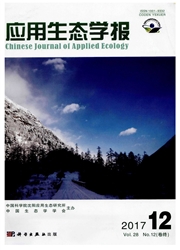

 中文摘要:
中文摘要:
细菌利用信号分子进行细胞间的交流即为群体感应.群体感应调控着生物膜形成、公共物质合成、基因水平转移等一系列社会性行为.在群体感应过程中,公共物质分泌后可以被群体中任何个体所使用即合作;亦可以被一些不分泌公共物质的个体所使用形成欺骗.群体感应合作-欺骗既可能在种群中稳定维持,也可能由于欺骗子的快速增长造成种群崩溃.欺骗子致种群崩溃为病原菌控制新策略研发带来了希望,是目前群体感应研究方面的前沿和热点.本文在介绍细菌群体感应合作及欺骗的基础上,分析了群体感应合作-欺骗生态关系形成和发展的影响因素,重点从亲缘选择、谨慎代谢、代谢限制(基因多效型)、群体感应监管等方面探讨了细菌群体感应合作-欺骗的稳定维持机制,并对细菌群体感应合作-欺骗的相关研究进行了问题总结和展望,以期为深入理解群体感应、微生物种群生态提供参考.
 英文摘要:
英文摘要:
Quorum sensing ( QS), a cell-to-ceU communication, regulates a variety of social beha- viors, such as biofilm formation, public goods produce and gene horizontal transfer of bacteria. In the process of quorum sensing, public goods could be utilized by any members in the population, which was termed as cooperation. Notably, public goods also could be shared by the individuals who could not maintain produce them, which was termed as cheating. Once cheaters come up, they possibly equilibrium with cooperators, meanwhile they also possibly induce the collapse of popula- tion due to their rapid growth and shortage of public goods. Therefore, wide attentions in medicine, agriculture, food science and so on regard invasion of cheaters arouses ed as a new strategy to con- trol pathogens. In this study, based on the introduction about the theory of bacterial quorum sensing cooperation and cheating , we analyzed the factors influencing the formation and development of the relationship between cooperator and cheater. Moreover, we discussed the mechanism of stabilization in the relationship between cooperator and cheater, including kin selection, metabolic prudence, metabolic constraint (gene pleiotropy) and policing quorum sensing. Finally, some problems in cur- rent researches of quorum sensing cooperation and cheating were presented as well as the future re- search directions. We hoped this paper could deepen the understanding of bacterial quorum sen-sing and ecology of bacterial population.
 同期刊论文项目
同期刊论文项目
 同项目期刊论文
同项目期刊论文
 期刊信息
期刊信息
